Nothing good comes from war except, on occasion, the prevention of something even worse. As pressure increases on the Biden Administration to take more aggressive action against Putin, the question is how to minimize the collateral damage to Americans and use the crisis to move toward a more humane future. Here are five possible ways.
1. Help Americans endure higher fuel prices. The best way to stop Putin’s war machine would be to put economic sanctions on anyone buying Russian oil or gas, because oil and gas revenue makes up about half of the Kremlin’s budget. But such sanctions would also drive the prices of oil and natural gas through the roof. (Biden’s decision today to stop imports of Russian oil to the U.S. will have far less consequence because only a tiny fraction of the oil we use comes from Russia.)
Gas prices in America are already topping four dollars a gallon (here in California, five dollars). That’s less of a problem for higher-wage workers who can work from home, but it’s a huge burden on lower-wage workers who have to make longer and longer commutes.
What to do? Help Americans caught in the energy squeeze. Revive the refundable expanded Child Tax Credit, which enabled millions of poor and working-class families to survive the COVID recession.
2. Move the nation toward green energy. Oil companies are pocketing windfall profits while their lobbyists are using the crisis to demand that the U.S. build new Liquid Natural Gas terminals, allow more oil pipelines, and approve new leasing of federal lands for oil drilling. That’s the exact opposite of what we need to do.

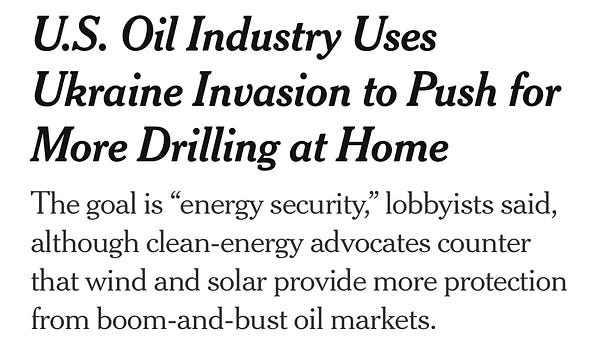
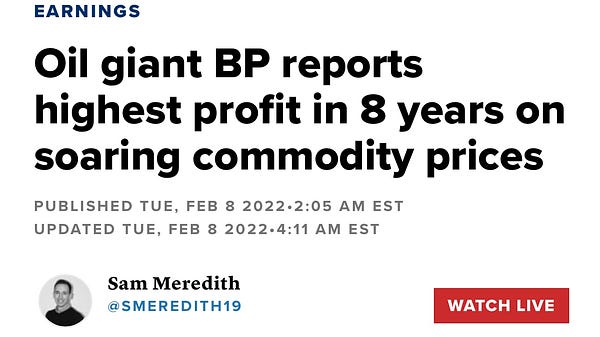
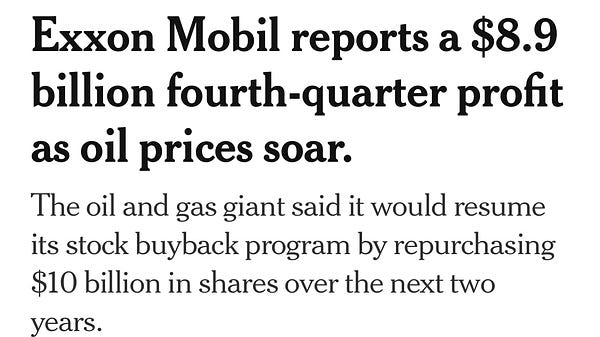
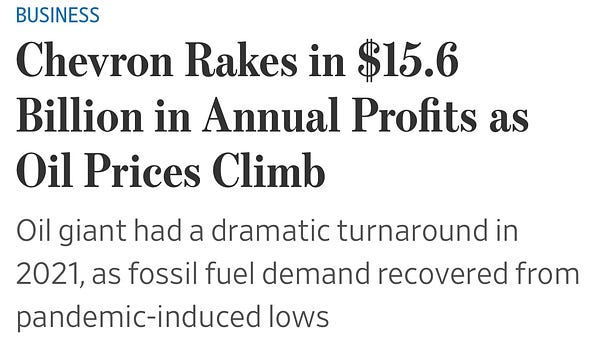
However we invest in new energy infrastructure, none of it will have an immediate impact on energy prices. The practical longer-term choice is between an energy infrastructure that supports the production of more fossil fuels (such as the additional LNG terminals, pipelines, and oil leases that energy lobbyists are now pushing) or one that moves the nation more quickly to renewable energy sources (such as subsidies for electric cars, batteries, and charging stations).
Now is the time to redouble our efforts toward the latter. We need to use this opportunity to build more of the green infrastructure America needs for the long term.
Meanwhile, there’s no reason American oil producers should enjoy windfall profits from rising energy prices. Congress should enact a windfall profits tax on them, and use the proceeds for additional green infrastructure. (The European Union is urging member countries to do exactly this. Why can’t we?)
3. Trim the military-industrial complex. Though the U.S. and other Western allies have stopped short of sending troops to Ukraine, they are sending weapons. Even Sweden, a non-NATO member, has announced it will send anti-tank weapons, helmets and body armor to Ukraine. Finland has pledged assault rifles and anti-tank weapons. In America, budget analysts expect defense spending in the 2023 federal budget to rise to between 3.5 percent and 4 percent of GDP.
All this military spending comes at the expense of domestic priorities in the United States and abroad. It also increases the likelihood of armed conflict. The big winners: U.S. aerospace and defense contractors that are making many of these weapons systems and whose share prices are surging.
America’s defense budget is already bloated — bigger than the next ten defense budgets put together. There’s no reason for more defense spending. If anything, we should use the current crisis to reexamine defense spending and make our armed forces more efficient — using the savings to finance more humanitarian aid around the world.
4. Put democracy and human rights at the center of American foreign policy. In one way, Putin’s war is elevating democracy and human rights in U.S. foreign policy. That’s why Biden has unified and mobilized much of the rest of the free world. But in pursuit of oil sources to replace Russian oil, America seems to be recalibrating its emphasis on human rights. That would be a tragic mistake.
This past weekend Biden officials met in Venezuela with the government of President Nicolás Maduro. Why? Because Venezuela’s petroleum exports are seen as a potential substitute for Russian oil. But Maduro’s government has been responsible for extrajudicial executions and short-term forced disappearances. It has jailed opponents, prosecuted civilians in military courts, tortured detainees, and cracked down on protesters. Judicial authorities have participated or been complicit in the abuses. Maduro used a state of emergency implemented in response to Covid-19 as a pretext to intensify his control over the population.
Last year, a United Nations fact-finding mission concluded that the Maduro regime has committed crimes against humanity. The exodus of Venezuelans fleeing repression and the humanitarian emergency represents the largest migration crisis in recent Latin American history.


Biden’s advisers are also discussing a possible visit to Saudi Arabia to help repair relations and convince the Kingdom to pump more oil. Saudi Arabia is also among the world’s worst abusers of human rights. According to the CIA, Saudi Arabia’s de facto leader, Crown Prince Mohammed bin Salman, was directly involved in the murder and dismemberment of Washington Post columnist Jamal Khashoggi.
Abandoning democracy and human rights around the rest of the world is no way to protect democracy and human rights in Ukraine.
5. Protect and expand voting rights in America. The same goes for the United States itself. Let’s use this crisis to reaffirm our commitment to voting rights.
Last weekend, Vice President Kamala Harris visited Selma, Alabama. Standing by the iconic Edmund Pettus Bridge that was the site of a violent clash between civil rights leaders and segregationist police in 1965, she drew a parallel between the Americans who marched for their rights and the Ukrainians fighting for their nation’s survival against an invading Russian military.
“Today, the eyes of the world are on Ukraine and the brave people who are fighting to protect their country and their democracy. And their bravery is a reminder that freedom and democracy can never be taken for granted by any of us.”
The fight in Ukraine should galvanize America to protect voting rights. Whether it’s a Black activist being beaten by a police officer or a mother marching across a muddy field fleeing violence, the brutality is the same.

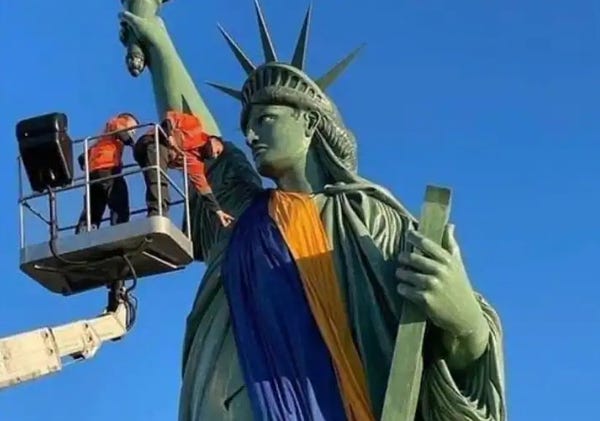
Months after the original Selma march, Congress passed the Voting Rights Act. In 2013, the Supreme Court gutted the Act — arguing that protections for Black voters were no longer needed in states with deep histories of discrimination. In the years since, states have moved methodically to make access to ballots more difficult. That effort has accelerated since the 2020 election, in light of Trump’s big lie.
The Senate is now sitting on two measures that would reverse these state efforts and make it easier for all Americans to vote — the John Lewis Voting Rights Advancement Act and the Freedom to Vote Act. But fifty Republican senators and two Democratic senators (Krysten Sinema of Arizona and Joe Manchin of West Virginia) stand in the way.
Putin’s war against Ukraine’s democracy should remind all of us of how fundamental the struggle for democracy is to America’s own purpose and ideals, and enact these two measures necessary to protect voting rights in America.














Share this post